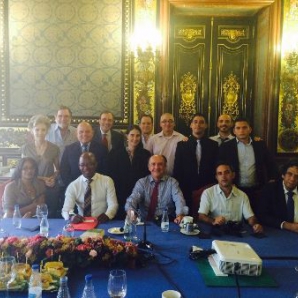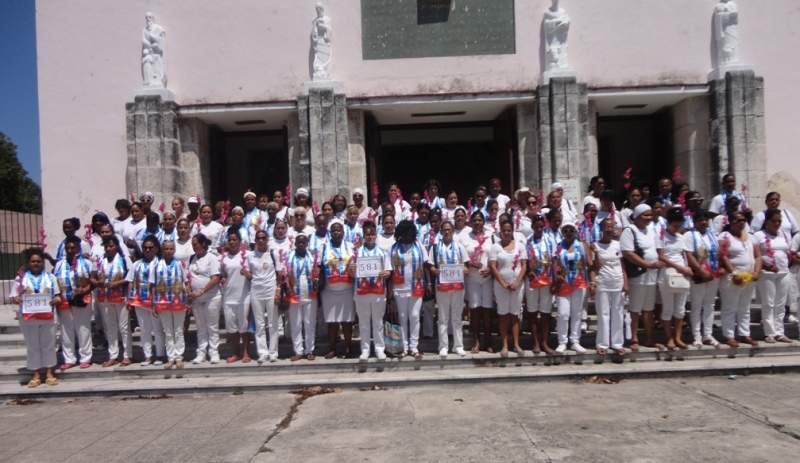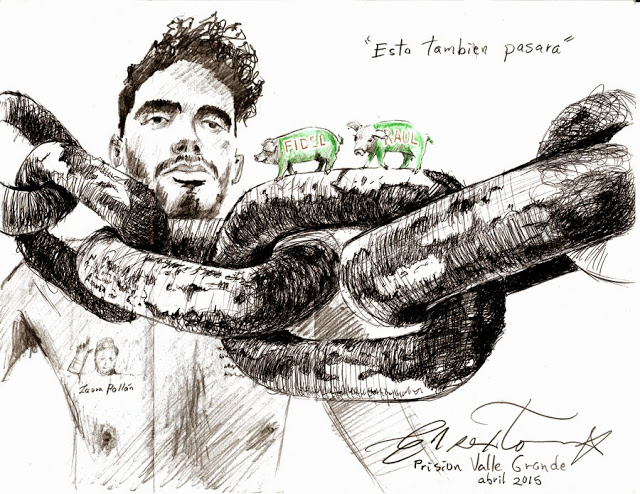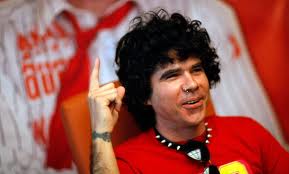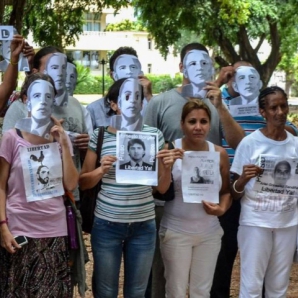
DiariodeCuba.com, Havana, 9 August 2015 – Some 60 Ladies in White and 30 human rights activists were arrested this Sunday in Havana where they protested while wearing masks with the image of United States President Barack Obama and carrying photos of political prisoners.
The Obama masks signaled the participating activists’ rejection of the Washington-Havana rapprochement, reported the AFP agency.
The report said that uniformed and plainclothes officers, accompanied by squads of official governmental protesters who were shouting, “down with the worms,” surrounded the dissidents and arrested them at about 14:00 hours (local time) when they were preparing to withdraw to their homes after the traditional Sunday march by the Ladies in White. continue reading
Obama “is to blame for what is happening (in Cuba), the Cuban government has been emboldened by the negotiations” with Washington, declared former political prisoner Angel Moya in front of the other activists on the plaza located across from the Santa Rita Church, where the Ladies in White customarily go on Sundays.
“That’s why we have this mask, because of his guilt,” added Moya, member of the Group of 75 and husband of Ladies in White leader, Berta Soler.
Obama must “put conditions on the Cuban government to stop the human rights violations,” Soler declared to the AFP.
“Really for us it would be very important if, when (US secretary of State John Kerry) arrived in Cuba on his trip for the official inauguration of the United States embassy, he were able to meet with some representation from (Cuban) civil society,” said Soler.
The opponents were aware that they would be arrested at the end of their meeting, and Moya recommended to the other activists that they offer no resistance, the AFP reported.
This is the seventeenth consecutive Sunday of repression against the Ladies in White and the activists who accompany them.
According to a Twitter report by activist Ailer Gonzalez, of the independent project Estado de Sats, accompanying the members of the women’s group were, among others, the grandmother of graffiti artist Danilo Maldonado (El Sexto), who has been in prison since last December without having been brought to trial; paroled writer Angel Santiesteban, artist Tania Bruguera, musician Gorki Aguila and photographer Claudio Fuentes.
Also there were activists Antonio Rodiles, Boris Gonzalez Arenas, Lia Villares, Egberto Escobedo and Camilo Ernesto Olivera.
From Gandhi Park, before the repressive operation, Gonzalez Arenas told DIARIO DE CUBA that 12 dissidents and Ladies in White were intercepted before arriving at Santa Rita Church.
Meibol Maria Sanchez Mujica, mother of prisoner Enmanuel Abreu Sanchez, who has been on a hunger strike for 88 days in a quest to regain his freedom, attended this Sunday’s activities of the Ladies in White.
Abreu Sanchez was sentenced to 12 years after an attempted illegal departure. He was accused of human trafficking, a crime he says he did not commit. Currently he is committed to the National Hospital.
As of this writing, the activists are beginning to be released.
Translated by Mary Lou Keel


